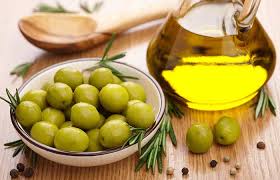A healthy lifestyle, including a healthy diet, has been associated with an improvement in cardiovascular risk factors. Although olive oil (OO) is a traditional component of the Mediterranean diet, there is some controversy over whether OO is acceptable in patients with coronary heart disease (CHD).
The aim of a new study was to assess the effect of olive oil and flaxseed consumption as part of a healthy diet on endothelial function, plasma inflammatory factors, and lipid profile in patients with CHD.
STUDY
This randomized nonblinded trial was performed on CHD patients. In the control group, participants received general heart-healthy dietary recommendations while in the intervention group, in addition to these recommendations, the participants consumed 25 ml of olive oil and 30 g of flaxseeds daily for 3 months. At baseline and after 3 months, changes in brachial flow-mediated dilation (FMD), plasma asymmetric dimethyl arginine, interleukin-6 (IL-6), IL-10, high-sensitivity C-reactive protein (hs-CRP), tumor necrosis factor-α (TNF-α), monocyte chemoattractant protein-1 (MCP-1), and lipids and lipoproteins were measured.
RESULTS
A total of 50 patients finished the trial (n = 24 in the intervention and n = 26 in the control groups). Compared to the control group, consumption of flaxseed and olive oil significantly improved brachial artery FMD%.
OO and flaxseed also reduced plasma IL-6, TNF-α, MCP-1, total cholesterol, and tended to reduce hs-CRP, and non-HDL-cholesterol but the concentration of other study indices were not different between the two groups.
STUDY CONCLUSIONS
The inclusion of OO and flaxseed in the diet of CHD patients may contribute to secondary prevention by improving endothelial function and plasma inflammatory factors. The overwhelming evidence is that OO is healthy for patients with CHD. In patients with advanced symptoms and disease, there is also evidence for oil-free versions of the diet.




